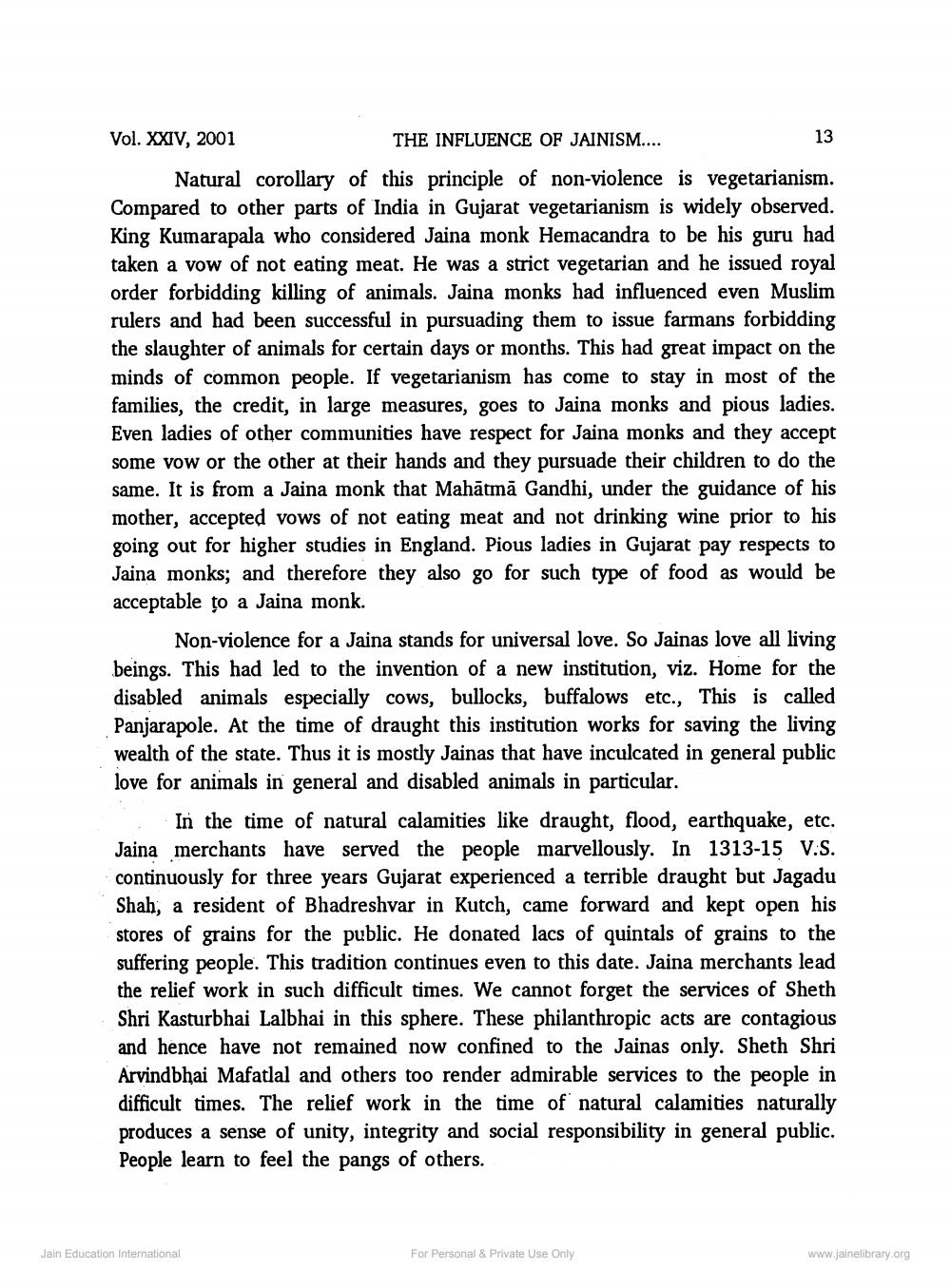________________
Vol. XXIV, 2001
THE INFLUENCE OF JAINISM....
Natural corollary of this principle of non-violence is vegetarianism. Compared to other parts of India in Gujarat vegetarianism is widely observed. King Kumarapala who considered Jaina monk Hemacandra to be his guru had taken a vow of not eating meat. He was a strict vegetarian and he issued royal order forbidding killing of animals. Jaina monks had influenced even Muslim rulers and had been successful in pursuading them to issue farmans forbidding the slaughter of animals for certain days or months. This had great impact on the minds of common people. If vegetarianism has come to stay in most of the families, the credit, in large measures, goes to Jaina monks and pious ladies. Even ladies of other communities have respect for Jaina monks and they accept some vow or the other at their hands and they pursuade their children to do the same. It is from a Jaina monk that Mahātmā Gandhi, under the guidance of his mother, accepted vows of not eating meat and not drinking wine prior to his going out for higher studies in England. Pious ladies in Gujarat pay respects to Jaina monks; and therefore they also go for such type of food as would be acceptable to a Jaina monk.
13
Non-violence for a Jaina stands for universal love. So Jainas love all living beings. This had led to the invention of a new institution, viz. Home for the disabled animals especially cows, bullocks, buffalows etc., This is called Panjarapole. At the time of draught this institution works for saving the living wealth of the state. Thus it is mostly Jainas that have inculcated in general public love for animals in general and disabled animals in particular.
In the time of natural calamities like draught, flood, earthquake, etc. Jaina merchants have served the people marvellously. In 1313-15 V.S. continuously for three years Gujarat experienced a terrible draught but Jagadu Shah, a resident of Bhadreshvar in Kutch, came forward and kept open his stores of grains for the public. He donated lacs of quintals of grains to the suffering people. This tradition continues even to this date. Jaina merchants lead the relief work in such difficult times. We cannot forget the services of Sheth Shri Kasturbhai Lalbhai in this sphere. These philanthropic acts are contagious and hence have not remained now confined to the Jainas only. Sheth Shri Arvindbhai Mafatlal and others too render admirable services to the people in difficult times. The relief work in the time of natural calamities naturally produces a sense of unity, integrity and social responsibility in general public. People learn to feel the pangs of others.
Jain Education International
For Personal & Private Use Only
www.jainelibrary.org




